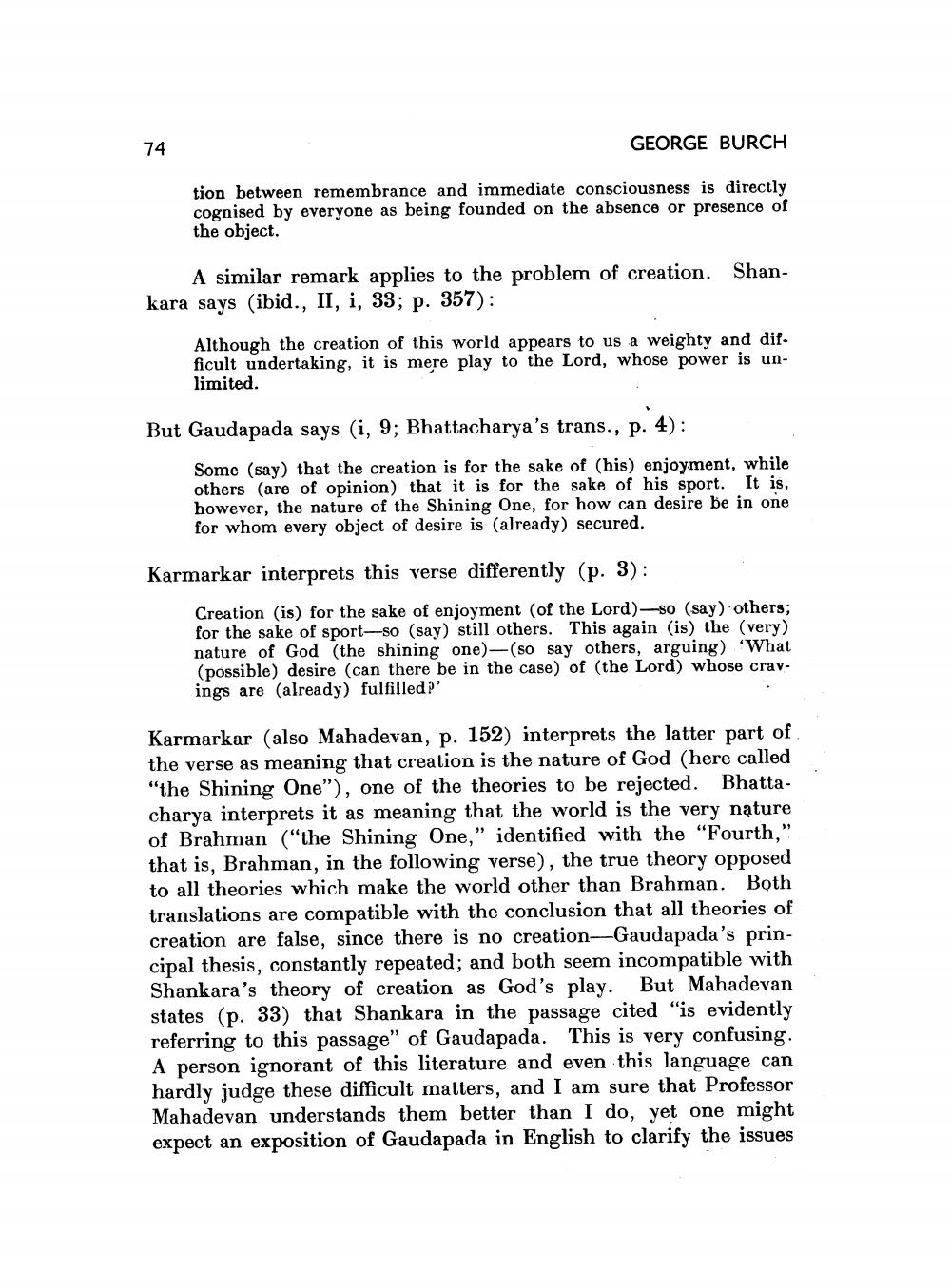Book Title: Recent Vedanta Literature Author(s): George Burch Publisher: George Burch View full book textPage 7
________________ 74 GEORGE BURCH tion between remembrance and immediate consciousness is directly cognised by everyone as being founded on the absence or presence of the object. A similar remark applies to the problem of creation. Shan. kara says (ibid., II, i, 33; p. 357): Although the creation of this world appears to us a weighty and difficult undertaking, it is mere play to the Lord, whose power is unlimited. But Gaudapada says (i, 9; Bhattacharya's trans., p. 4): Some (say) that the creation is for the sake of (his) enjoyment, while others (are of opinion) that it is for the sake of his sport. It is, however, the nature of the Shining One, for how can desire be in one for whom every object of desire is (already) secured. Karmarkar interprets this verse differently (p. 3): Creation (is) for the sake of enjoyment (of the Lord)-so (say) others; for the sake of sport-so (say) still others. This again (is) the (very) nature of God (the shining one)-(so say others, arguing) "What (possible) desire (can there be in the case) of (the Lord) whose cravings are (already) fulfilled?' Karmarkar (also Mahadevan, p. 152) interprets the latter part of the verse as meaning that creation is the nature of God (here called) "the Shining One"), one of the theories to be rejected. Bhattacharya interprets it as meaning that the world is the very nature. of Brahman ("the Shining One," identified with the "Fourth," that is, Brahman, in the following verse), the true theory opposed to all theories which make the world other than Brahman. Both translations are compatible with the conclusion that all theories of creation are false, since there is no creation-Gaudapada's principal thesis, constantly repeated; and both seem incompatible with Shankara's theory of creation as God's play. But Mahadevan states (p. 33) that Shankara in the passage cited "is evidently referring to this passage" of Gaudapada. This is very confusing. A person ignorant of this literature and even this language can hardly judge these difficult matters, and I am sure that Professor Mahadevan understands them better than I do, yet one might expect an exposition of Gaudapada in English to clarify the issuesPage Navigation
1 ... 5 6 7 8 9 10 11 12 13 14 15 16 17 18 19 20 21 22 23 24 25 26 27 28 29
